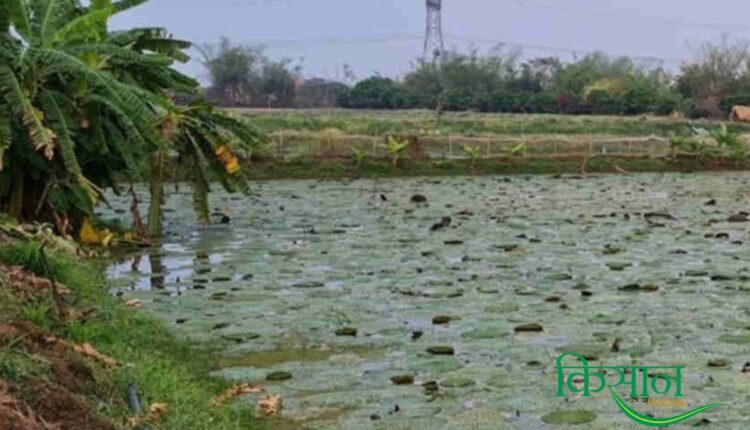Farmer Deepak Maurya: While the increasing use of chemical fertilizers and pesticides in the agricultural sector has affected the quality of the produce on one hand, on the other hand, the inclination of farmers towards organic farming has also increased. Deepak Maurya of Uttar Pradesh is working in this direction, who is promoting natural farming by combining traditional and organic farming. He cultivates seasonal crops like coriander, fenugreek and various flowers on the basis of crop cycle, so that his land can achieve maximum productivity. His aim is to fully engage in organic farming and make it profitable and sustainable, although he still has to work with a mixed method while facing some challenges.
Specialty in Deepak Maurya’s farming method
Deepak Maurya’s focus is to move towards organic farming, in which there is an inclination towards growing crops through natural methods by reducing the use of chemical fertilizers and pesticides. He believes that organic farming improves the quality and taste of the produce and is also beneficial for health. One special thing about Deepak’s farming is that he tries to make maximum use of organic methods in every crop and maintains the fertility of the land by rotating different crops in his small holding. Along with this, he started cultivating crops like coriander, fenugreek as per the regional demand, so that he can earn good profits.
Facing challenges and solutions
The biggest challenge in Deepak Maurya’s farming is limited resources. He has only a wet land, on which he is cultivating with the help of natural resources. Lack of beneficial resources in organic farming is also a big problem for him. The availability of cow dung manure or organic pesticides is limited in his area, which makes organic farming difficult. To overcome this deficiency, Deepak tries to participate in local agricultural fairs and agricultural awareness programs to gather new technical knowledge and resources related to organic farming.
The help of government schemes and subsidies can be important for farmers like Deepak, but till now he has not taken advantage of them. The reason behind this is lack of awareness and procedural difficulty. Deepak believes that if small farmers like him get timely guidance and support, they can achieve more success in organic farming.
The future of organic farming and Deepak’s thinking
Deepak Maurya believes that through organic farming, not only the environment can be protected, but the quality of the product also improves. Along with this, the market value of organic farming produce is also high, which increases economic benefits. He believes that if other farmers also turn to organic farming and the government provides training and facilities in this direction, then both the income and health of the farmers can improve.
Deepak Maurya’s work makes it clear that despite limited resources and limited information, farmers can make organic farming successful. His efforts are an inspiration for other farmers that innovation and success can be achieved in every field of farming with the power of hard work and determination.
Benefits of government initiatives and schemes
The government has many schemes to promote organic farming like Pradhan Mantri Krishi Sinchai Yojana, organic farming subsidy, and training programs, which can support farmers in this direction. If farmers like Deepak Maurya take advantage of these schemes, they will see improvement in every aspect of farming.
Even small farmers like Deepak Maurya can face challenges and make a better future in organic farming. Their determination and hard work definitely have the ability to take them and organic farming to new heights. So every farmer can make his life better through organic farming.
Some special information related to organic farming for farmer brothers and sisters
Main benefits of organic farming
1. Maintaining soil fertility: The use of organic fertilizers in organic farming increases the organic structure and nutrients of the soil.
2. Environmental protection: This method does not release chemical residues into the environment, which reduces the risk of water and soil pollution.
3. Safe for health: Products obtained from organic farming are free from chemicals, which has a positive effect on health.
4. Long-term crop production: Organic farming maintains the natural properties of the soil, which keeps the land useful for a long time.
Major components in organic farming
1. Organic manure: Such as cow dung manure, green manure, vermicompost etc.
2. Organic pesticides: Use of organic pesticides like neem oil, garlic, red chilli solution, Jeevamrit.
3. Crop rotation and intercropping system: Crop rotation keeps the nutrients of the soil balanced, which improves the quality of the soil and crop yield.
4. Organic seeds: Only those seeds are used in organic farming which are free from chemical processing.
Schemes in support of organic farming by the government
There are many schemes by the Government of India to promote organic farming.
1. Paramparagat Krishi Vikas Yojana (PKVY): Organic farming is encouraged in this.
2. Mission Organic Value Chain Development for North-East Region (MOVCDNER): This scheme has been made to promote organic agricultural productivity in the Northeast region.
3. National Mission for Sustainable Agriculture (NMSA): Under this, assistance and training is provided to promote organic farming.
Organic farming is a profitable method for farmers, which not only gives healthy and nutritious products, but also proves beneficial for the soil and the environment.
Contact us- If farmers want to share any valuable information or experiences related to farming, they can connect with us via phone or whatsApp at 9599273766 or you can write to us at [email protected]. Through Kisan of India, we will convey your message to the people, because we believe that if the farmers are advanced then the country is happy.
You can connect with Kisan of India on Facebook, Twitter, and WhatsApp and Subscribe to our YouTube channel.



